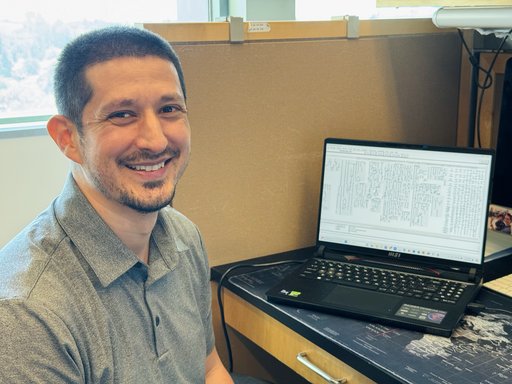Pork-tective Powers: Strengthening Weanling Defenses
By Shaila Ann Sigsgaard
Alfredo Chavez-Arroyo, a postdoctoral researcher in the Baumler Lab at the University of California, Davis, is investigating the microbiome pillar of the PIG PARADIGM initiative. His research focuses on how the fecal microbiota of weanling piglets influences their vulnerability to enterotoxigenic Escherichia coli (ETEC) infections during the critical weaning period.
Explaining his approach, Chavez-Arroyo said, "We are isolating fecal microbiotas from weanling piglets throughout the weaning process and implanting them into germ-free mice bred in our facilities." By transferring these microbiotas into mice, the team can study their development in piglets and assess their role in resistance or susceptibility to ETEC infections. He elaborated, "We can ask how this microbiota makes piglets resistant or susceptible to an ETEC challenge."
The research involves exposing colonized germ-free mice to ETEC in controlled environments, allowing the team to determine which microbiotas offer protection. "We hope these studies will translate to the biology of piglets on the farm so we can understand their microbiota’s susceptibility," he noted.
A critical component of the study is the unique germ-free mice bred under controlled conditions. "These mice are completely germ-free, with no bacteria or fungi, and they breed inside small isolators," Chavez-Arroyo said, highlighting the precise environment needed for the experiments.
The team's pilot study has shown promising results. "We’ve transferred microbiota from weanling piglets into germ-free mice, challenged them with E. coli, and are now analyzing microbial compositions to identify which microbiotas correlate with resistance to infection," he explained.
Looking ahead, the team aims to replicate and expand their findings. "We believe some microbiotas are protective while others are not. We want to repeat these experiments and further analyze diverse infection models," Chavez-Arroyo stated.
He envisions a transformative impact on pig farming. "Understanding which microbiotas benefit piglets could help us develop interventions or modify the microbiota to enhance resistance to infections," he said. These interventions could involve modifying the microbiota or the host itself to bolster piglet immunity.
"In that way, we can better understand how protective microbiotas function. Our goal is to develop something either interventional or preventative," he concluded.
Exploring PIG-PARADIGM with Alfredo Chavez-Arroyo
Alfredo Chavez-Arroyo
Post Doc (Ph.D)
Department of Medical Microbiology & Immunology
University of California, Davis
Research Topic: Using in vivo mouse models to investigate the microbiota during the weaning process in piglets. Additionally, we're investigating the role of endogenous Enterobacteriaceae in providing colonization resistance to ETEC
Email: alchavez@ucdavis.edu

